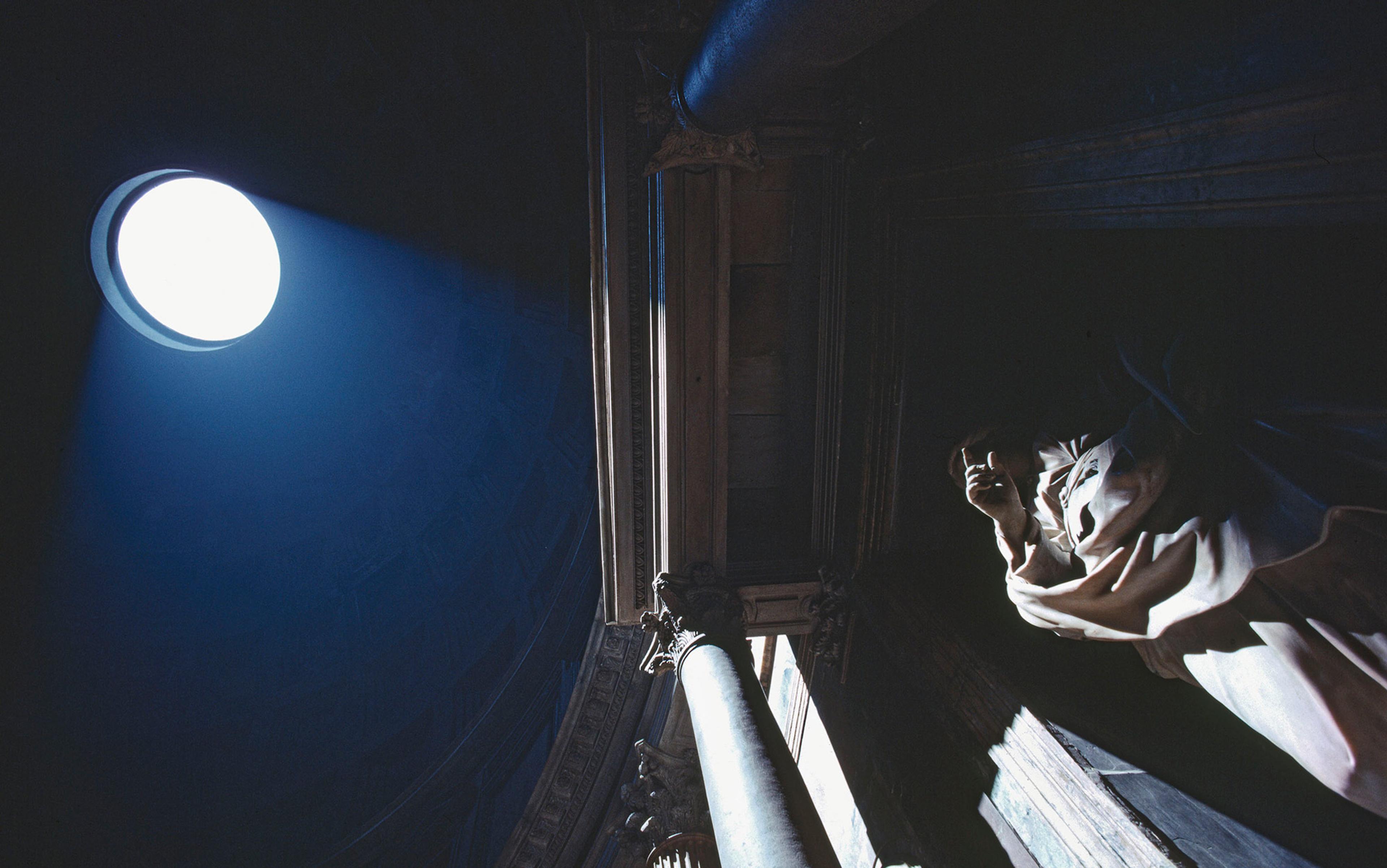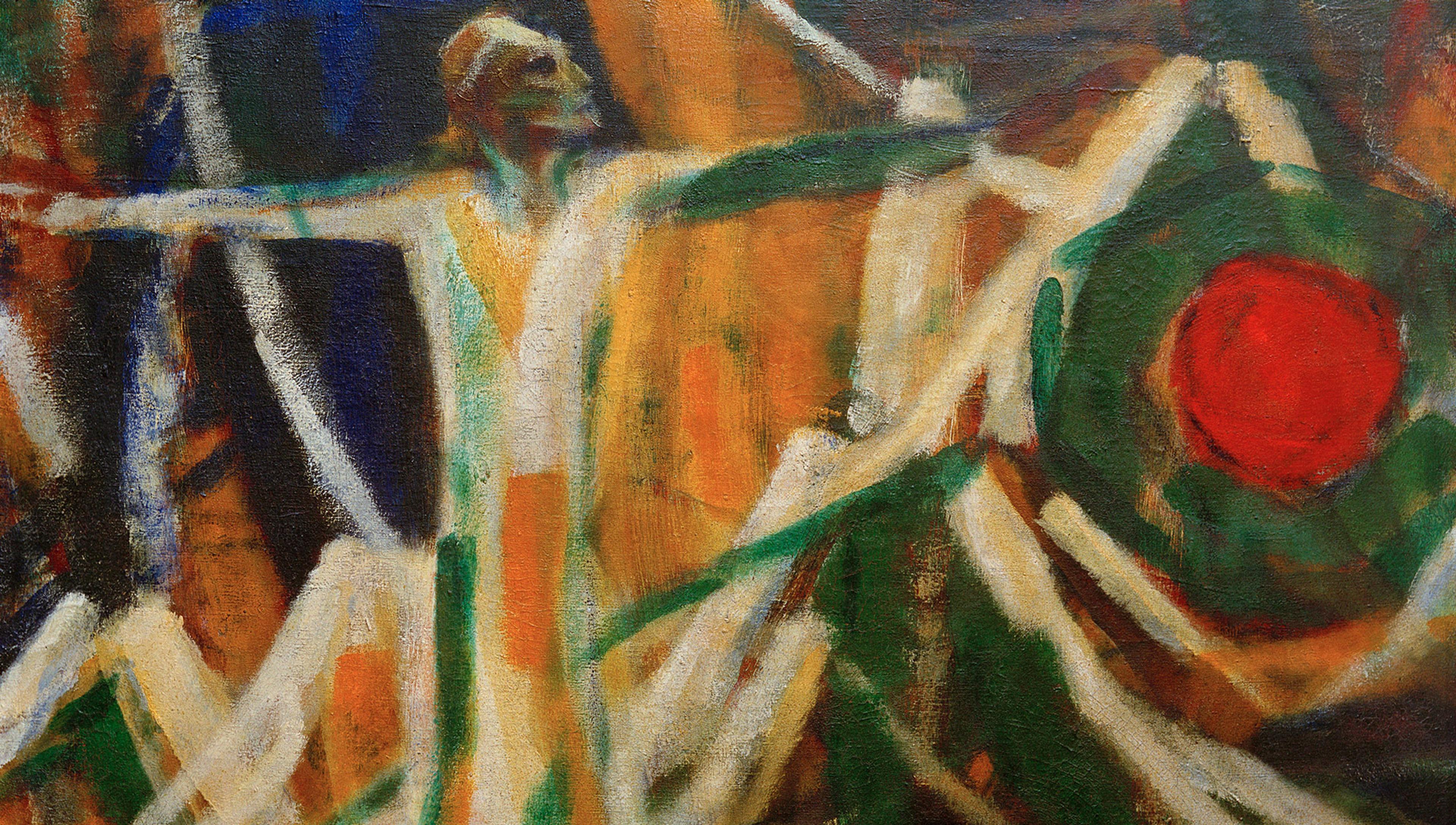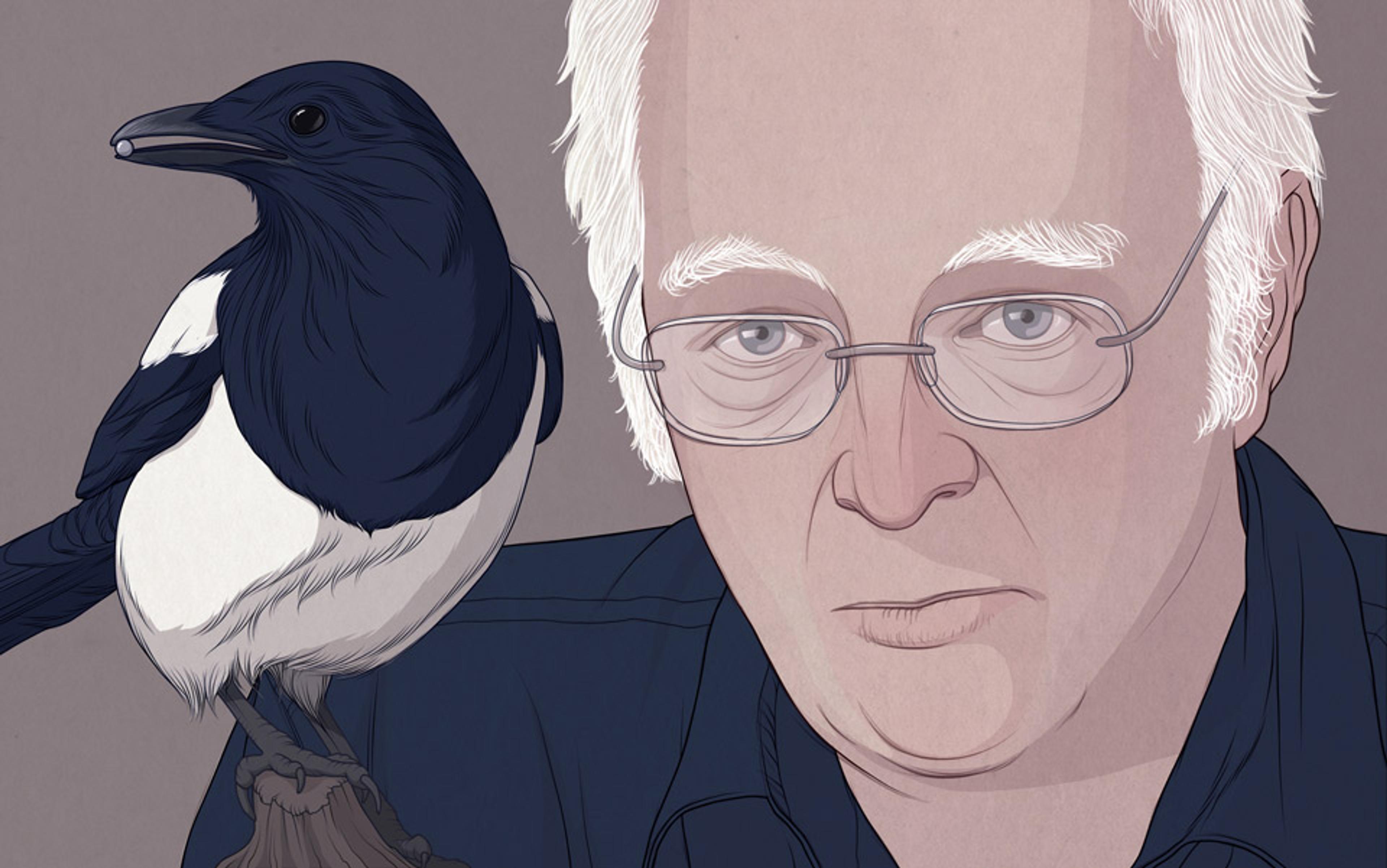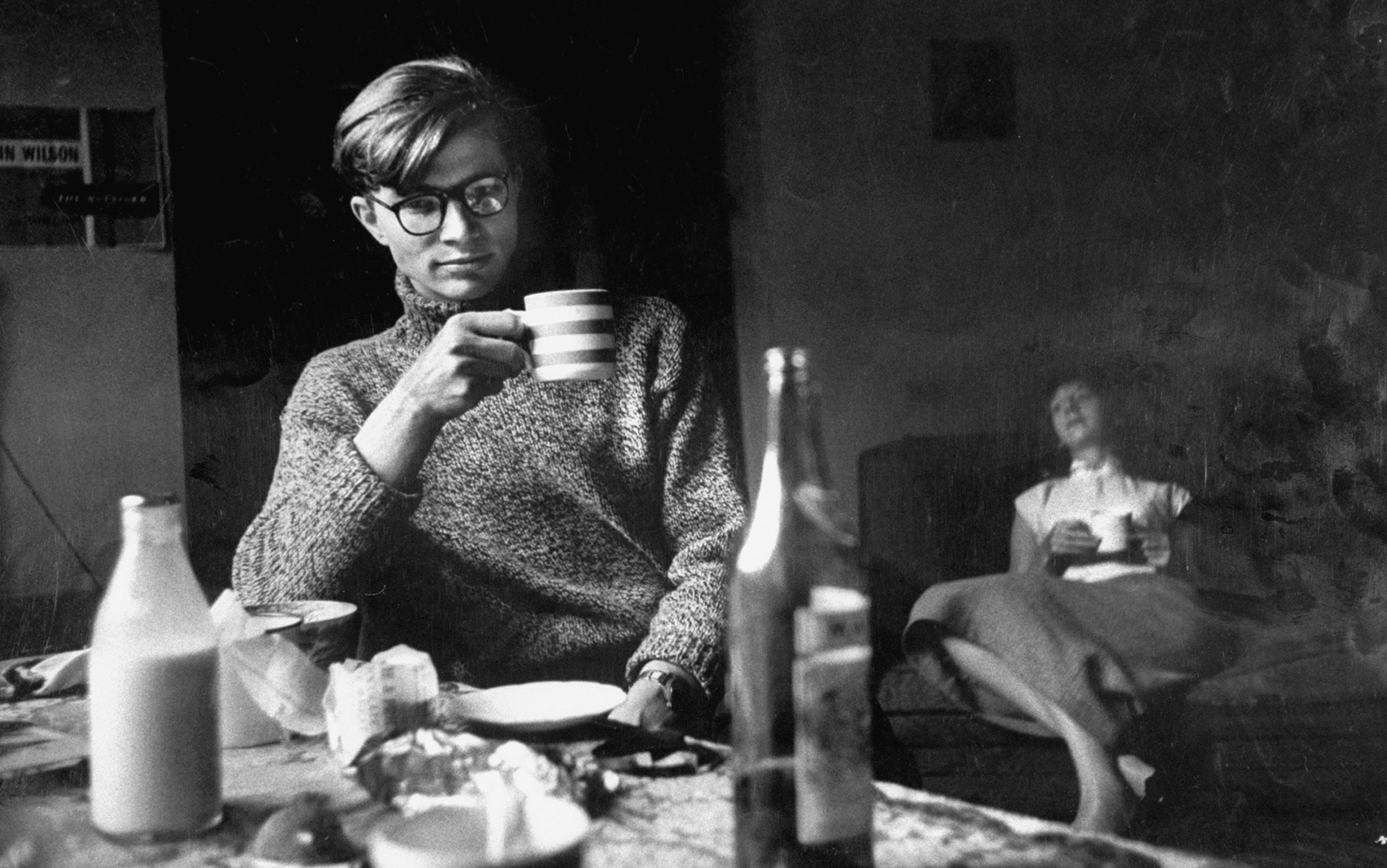Imagine you spend your childhood almost entirely in a library, your father’s library. There are thousands upon thousands of volumes, most of them old, many in foreign languages. Your native language is Italian, but by age 10 you are reading in Latin, Greek, German and French. English and Hebrew are next on the list.
Why are you doing this? Your father is ambitious for his firstborn son. He wants you to be a priest. At 12, you receive the tonsure, meaning your hair is cut like a monk’s to dedicate you to God. You are dressed in a cassock. More than a priest, or even a bishop, your father wants you to be a champion of Christianity, a theologian; you will use your learning to refute false doctrines, liberalism, atheism.
Your progress is astonishing. At 14, your tutors tell you they have nothing more to teach you. Left to your own devices, you limber up with translations from the classics, philological commentaries, philosophical dissertations, tragedies, epigrams, History of Astronomy and a Life of Plotinus, until, at age 17, you embark on your first major work: an Essay on the Popular Errors of the Ancients. ‘The world is full of errors,’ you write in the opening line, ‘and man’s first task must be to know the truth.’ Your father is delighted. But the truth, as time slips by among the ‘sweat-stained pages’ in the book-lined rooms, is that the more you write about gods and ghosts and mythical monsters, the more attractive these stories begin to seem, especially when compared with the Christian rationality that was supposed to sweep them away.
A crisis is approaching. At some point you look in a mirror and discover your back is crooked. Your youth has been wasted in ‘seven years of mad and desperate study’. Your eyesight is weak, you have asthma, you are constipated. So unlikely are you ever to marry or have children that your younger brother is declared heir to the family estate. You have lost your birthright. But most of all, you think too much. ‘Thinking about how one breathes,’ you find you can hardly breathe; ‘thinking and ruminating on the act of urination,’ you find you can’t urinate. ‘Thought,’ you later reflect, ‘can crucify … a person.’
How can you know that it is precisely this insight into the dangers of compulsive thinking, the psychosomatic nature of your ills and the hubris of grand philosophical systems that will make you so important to readers 200 years hence?
In any event, you don’t want arid erudition anymore; you want poetry. So you translate the Odyssey and the Aeneid and even start to write poems yourself. You will call this your literary conversion. It is followed at 18 by your political conversion. Suddenly you turn against your father’s support of Papal power and absolutist monarchies, and become a patriot and a liberal. You want Italy to be united and free. You want revolution. And you start writing patriotic hymns. Your father is appalled. But the real bombshell arrives at 21, your philosophical conversion. All at once, it’s obvious to you that Christianity is as much an ‘error’ as believing in Zeus or Apollo. Because the world is ‘a solid nothing’. It has no meaning and no direction.
So what on Earth are you going to do now?
The ‘you’ of this story, as any Italian schoolchild would immediately recognise, is the poet and thinker Giacomo Leopardi. The place is Recanati, a small town near the Adriatic coast south of Ancona, then part of the Papal State. The time is the early 19th century; Leopardi was born in 1798 and completed his three ‘conversions’ in 1819. So in one of the most neglected areas of perhaps the most backward and reactionary state in Europe, a young man arrived at the conclusions that were then driving the early writings of Arthur Schopenhauer and would later underlie the works of Friedrich Nietzsche, of 20th-century Existentialism and absurdism, of Samuel Beckett and Albert Camus, Thomas Bernhard and Emil Cioran.
Trained all his life to pursue knowledge, Leopardi’s simple intuition was that, once found, knowledge did not help you to live. On the contrary, it brought despair. And once learned, it could not be unlearned. His enormous contribution, in the 18 years that remained to him, would be to explore this modern, godless state of mind in all its ramifications and implications, to reflect on how it had come about, and to look for strategies on how to live with it. In an age when so many people, particularly young people, are at a loss to give life meaning and direction, Leopardi is essential reading. ‘No one,’ Schopenhauer would observe, had handled the theme of life as ‘tragic farce’ so ‘thoroughly and exhaustively’ as Leopardi. Yet he did so ‘in such a multiplicity of forms and applications, with such wealth of imagery, that he never wearies us, but, on the contrary, is throughout entertaining and exciting’.
Boredom and inertia, Leopardi understood at once, would be the archenemy of a world freed, or bereft, of all illusions, all belief. ‘If I were to go mad this moment,’ he wrote in 1819, ‘I think my madness would be always sitting with my eyes wide with bewilderment … neither laughing nor crying, never moving from where I was unless forced … This is the first time boredom hasn’t merely oppressed and wearied me, but actually plagues and racks me like a terrible pain.’
How did the heroes of the past do what they did, he wondered? How did anyone find the will to achieve anything? Illusion. They were driven by beliefs that were demonstrably vain, by the very errors that Leopardi had trained himself to smell out and deconstruct. On the other hand, how wonderful to believe in such things and to act with energy and intention. No sooner had Leopardi undergone his philosophical, essentially nihilist conversion than his thinking began to revolve around this central paradox: one studied and educated oneself under an imperative to find the truth, yet to live a happy life, which necessarily meant a purposeful active life, one needed to be impelled by illusion, not truth – or certainly not ultimate, philosophical truths.
So was ‘illusion’ a positive quality? And was it actually better not to know things, at least certain things? In his first major, but very brief poem ‘The Infinite’, written in 1819, the poet, sitting on a hillside, rejoices in the fact that his view is mostly blocked by a hedge. Not seeing the landscape, he can imagine all kinds of things out there beyond the hedge, imagine the infinite, and hence write poetry, something he would not be able to do if he saw the landscape plainly. Freed of a stream of hard information, the imagination is stimulated, which is a pleasure. ‘All that is fixed and certain,’ Leopardi commented in his diary, ‘is much farther from contenting us than that which, by its very uncertainty, can never content us.’ Vagueness has a value in itself. One hundred and fifty years later, the aphorist Cioran would have this text framed and hang it in his Paris apartment.
What rapidly began to accumulate, in a diary Leopardi called his Zibaldone (meaning ‘hotchpotch’) was a vast psychological study of how man in the past, individually and collectively, had defended himself from existential emptiness, and at the same time an exploration of how in the present it might be possible both to know the truth about life, yet still to cultivate illusion and so find the impetus needed to live. Crass as it might seem, there was a self-help impetus behind his thinking. ‘I wish the best for my species,’ he wrote laconically. In fact, he was the poet most read by Italian troops in the misery of the First World War trenches.
An illusion such as Christianity could lead only to aberration and disaster
The key to a positive state of mind, Leopardi soon decided, might lie in inducing a temporary forgetfulness. In ‘To a Winner with the Ball’, written in 1821, the poet watches a game of football, as it then was, and likens its impassioned players to the heroes of ancient times: ‘has human effort / Ever been but a game?’ he wonders. ‘Is truth any less / Empty than falsehood?’ In the absence of nobler beliefs, the absurd notion that it might be of supreme importance to win a game of football is offered as a solution, albeit temporary, to existential crisis:
What’s life for? To be despised:
Blessed then when by danger
Beset, it forgets itself, doesn’t measure
The damage or heed the flow
Of slow and putrid hours;
Blessed when the foot
Pushed to the ultimate limit
Comes back the happier.
There could be no football for Leopardi. Almost an invalid and with no private income, he was trapped in Recanati with his reactionary father and an ultra-Christian, penny-pinching mother who had no intention of paying for her son to travel to the centres of learning where he might be corrupted and fall into sin. ‘I once knew very well the mother of a family,’ Leopardi remarked in a thinly veiled autobiographical note, ‘who was not in the least superstitious, but devout and unswerving in her Christian faith and in the practice of her religion.’ Believing that the only thing that mattered was getting to heaven, this mother deliberately talked down her children’s capacities and ambitions, to help them avoid the sin of pride, and ‘sincerely envied’ parents who lost their children young ‘because such infants had flown safe and sound straight to paradise, and had freed their parents from the inconvenience of supporting them’. An illusion such as Christianity, Leopardi concluded, could be genuinely comforting, until you started to apply systematic reason to it, after which it could lead only to aberration and disaster.
In an extraordinary paragraph that attacks the core of Western thinking from Plato onward, Leopardi suggests that man had been happier in a distant past trusting the truth of direct but always relative experience, and ran into trouble when looking for metaphysical absolutes. ‘We were fine just as we were … But we have sought out the good, as a thing divided from our own essence, distinct from our own natural and original intellective capacity, as a thing consisting of abstractions, and of universal forms.’ All too often, the end result was persecution and torture.
In November 1822 Leopardi finally managed to leave home for Rome where he stayed with an uncle, met other philologists, academics and clerics, and looked for some kind of work. But he hated Rome. He found his interlocutors pompous and crass, and realised at once that it had been an illusion to imagine that travel might cure his despair. ‘All the greatness of Rome,’ he wrote to his sister Paolina, ‘has no other purpose than to multiply the distances and numbers of steps you have to climb to see anyone at all.’ ‘The ugliest, crassest Recanati tart was better than all the streetwalkers of Rome,’ he informed his brother. In April 1823 he was already back home. Years later he remembered: ‘When I went to Rome, the need to live with others, to give myself outwardly … made me stupid, inept and dead inwardly … I lost almost all self-esteem and all hope of … achieving anything in my life.’
Self-esteem, Leopardi now reasoned, would be one of the most crucial illusions for modern man, and something we all need help with. The English and French, he noticed, had an unwarrantedly high opinion of themselves, something that sustained their collective self-regard and created a shared sense of complacency. The Italians on the contrary had a very low opinion of each other, with each person trying to build up his or her own self-esteem by talking down others. Public conversation in general in Italy, he decided after the trip to Rome, was little more than ‘raillery and insult’. At this absolute low point of his life, Leopardi set about turning the very exploration of despair into his salvation. First in poetry, then in a series of prose pieces known as the Operette morali, or Moral Fables (1827).
The strategy of his finest poems is simultaneously to dramatise some absolutely inconsolable fact of private loss or tragedy, yet redeem it, as least aesthetically, by turning the narrative savouring of catastrophe into a pleasure, a wondering over the individual’s capacity to feel and suffer and transform that suffering through language, an achievement that then becomes a source of self-esteem and encouragement for both writer and reader. In ‘The Dream’, the poet is visited by ‘the girl who first taught me what love is, then left me in tears’. ‘Are you alive?’ she asks. ‘Do you remember anything about us?’ She herself is dead, she says. The poet is appalled. She died young:
Cut off in the flower of my years
When life is sweetest, and before the heart
Can know how human hopes are all
In vain.
While the history of their relationship is left absolutely vague, and hence intriguing, the anguished conversation between the two unfolds with crisp colloquial directness, but in a style that is curiously archaic, as if heard across a vast divide of time that, as it were, silvers the underlying hopelessness. ‘Works of genius, have this quality,’ Leopardi commented in his diary, ‘that even when they capture exactly the nothingness of things, or vividly reveal and make us feel life’s inevitable unhappiness, or express the most acute hopelessness … they are always a source of consolation and renewed enthusiasm.’ ‘Momentarily,’ he adds; elsewhere, he reflects that one might expect a poem to induce this state of mind, ‘for about half an hour’. What makes Leopardi superior to so many other thinkers and poets is his refusal to deceive himself about the power of art and aesthetic consolation. Managing despair is a day job; never imagine the problem is solved.
An elf and a gnome discuss the extinction of the human race, and agree that the planet is better off without it
In the Moral Fables, written in 1824, whimsy and irony stand in for lyricism. The book opens with a ‘History of the Human Race’ that has Jove first inventing an easy, painless, rather restricted life for man, then constantly having to make changes in response to his creature’s tendency to feel bored and dissatisfied. Natural phenomena are multiplied and diversified, different climates and races are introduced, new desires and ambitions are stimulated, and with them the concept of work and achievement. Eventually, illness is conjured up to give man something to overcome and a reason to feel happy for the mere fact of good health. But none of this is enough. Men are ‘avid for the infinite but incapable of it’. Irritated by their endless whining, Jove finally lets the human race have what it has always been clamouring for, Truth. He knows it will be devastating.
So the content is grim, but the form is full of fun. As in the best of Jorge Luis Borges’s Fictions (1944), we amuse ourselves with our tremendous predicament. Atlantis and Hercules play ball with the world and drop it. An elf and a gnome discuss the extinction of the human race, and agree that the planet is better off without it. Fashion and Death, who turn out to be sisters, debate which of the two is the most usefully destructive. A progressive academy that believes in the betterment of man offers three prizes for breakthrough inventions: a robotic best friend to build up the owner’s self-esteem; a steam-driven man to perform ‘virtuous and magnanimous deeds’ (since no one else will), and an ideal woman along the lines drawn up by Baldassare Castiglione in The Book of the Courtier (1528).
Essentially, Leopardi is creating a playful mythology, whimsical illusions that nevertheless deliver the truth that sweeps aside all illusion. The operation is all the more engaging for the multitude of sly references to Greek and Christian myth that allow the reader to feel pleased with himself for recognising them, while nevertheless swallowing the bitter pill: life is empty and absurd. In ‘Copernicus’, the Sun suddenly decides he is fed up of turning round the Earth, and asks the philosopher Copernicus to inform the planet that, if it wants to go on enjoying evenly distributed light and warmth, it will have to do the turning itself from now on. Copernicus is hesitant: the change might be possible, he says, but the fact is that, with Earth fixed and the other planets all orbiting around it, man, despite his misery, has been able to imagine himself the centre of the Universe and the acme of creation. Reduce the Earth to spinning around like any other planet, and man will lose his self-importance and be left just with his misery. Not to worry, the Sun tells Copernicus, if they don’t like the new situation, men will have no problem living in denial and imagining they are still the masters of the Universe anyway. Then, who cares what men think? So Leopardi satirises human delusions of grandeur, but simultaneously reminds us how attractive it was to think of the Sun being pulled across the sky by a chariot, and how uninspiring is our mechanistic knowledge of the Universe. If our condition is dire, we do have our imagination, he suggests, which we dismiss in favour of scientific fact at our peril.
These antithetical energies in Leopardi’s vision, at once unmasking illusion and regretting its loss, inevitably led to conflicting responses to his work. His poems, where the underlying nihilism could be overlooked in favour of their extraordinary lyrical intensity, were soon loved and admired. But in the Moral Fables, the poet’s atheist message and his mockery of all science-driven optimism were inescapable. Rather than being moral, the stories destroyed all morality, observed one judge of Italy’s main literary prize in 1830. Needless to say, Leopardi didn’t win that prize, and he knew why: ‘The perpetual and total denial of the vanity of things,’ he wrote, was an obligation in society; how else could people trick reason and sustain their illusions? In short, no one wants a bearer of bad tidings.
One of the fables, describing the life of an imaginary philosopher, begins: ‘Filippo Ottonieri … lived most of his life, in Nubiana … where there is no memory of his ever having injured anyone, in word or deed. He was generally hated by his fellow citizens…’ Hated simply because he didn’t like what they liked, didn’t share their opinions, hence became a threat to their collective denial. And as the illusions on which society was based became more fragile, Leopardi goes on to suggest, insistence on conformity can only increase. It’s hard not to appreciate his clairvoyance in this regard, and when he has Ottonieri claim that one can measure the extent of a society’s civilisation by the diversity of opinion it is willing to countenance, we can’t help feeling that our modern times stand condemned.
The poet departed Recanati again in 1825, living first in Milan, then Bologna, where the papal authorities refused him a job because of his ideas, then Florence, then Pisa. Working freelance for publishers, he was always short of money, his health always poor. Three times he fell in love, and each time had to recognise that for him this was the most unlikely illusion of all. ‘My dear, he stank,’ was how the last object of his affections explained to a friend her refusal of the poet. ‘Now you’ll rest forever, worn-out heart,’ Leopardi wrote in the late poem ‘To Himself’. ‘The ultimate illusion that I thought was eternal died. It died.’
Even more galling than being denied work for his subversive ideas was the constant insinuation that his negative thinking was merely the result of his twisted spine and poor health, based, what’s more, claimed the Catholic critic Niccolò Tommaseo, not on reason but on a few ‘incomplete observations’. ‘I wish it were so,’ Leopardi replied to his publisher who had told him of the remark. He added new pieces to the Fables to counter the criticism, but knew it would stick. ‘Two truths that most men will never believe,’ he remarked in his diary in 1832: ‘one that they know nothing, the other that they are nothing. Add the third, which depends a lot on the second: that they have nothing to hope for after death.’ Again, he proved clairvoyant. Although Leopardi has always been read in Italy, and although in the last few years English and American publishers have overcome our innate Anglo-Saxon provincialism to retranslating and republishing all his work, there remains a resistance to his thinking. Perhaps the time has come, though, when we are so genuinely used to the bad news which is Leopardi’s premise that we can now begin to appreciate the strategies for survival he developed to deal with that news.
In 1833 he moved with a friend to Naples, living in poverty and giving up any attempt to become part of literary society, even discontinuing his diary, as if that too had been an illusion. In 1836 he wrote his last great poem, ‘Broom, or the Flower of the Desert’. Walking on the slopes of Vesuvius where a whole civilisation had been buried under burning lava, he takes comfort in the scent and yellow flowers of the broom. Very soon we realise that the shrub is an image of Leopardi’s own endeavour; it thrives on the destruction of man’s illusions, but without any pretensions to immortality, quite resigned to being swept away itself by the next lava flow. All the same, it does adorn ‘this abandoned countryside with fragrant bushes’. The poem was published posthumously in 1845, Leopardi having departed this world aged 38 in 1837.
Why read Leopardi now? And what Leopardi? If you’re feeling robust enough for a major reality check, go to the Moral Fables, nobody will tell you more truthfully the predicament you are in, or put such a big smile on your face as he does it. If you want the company of someone who thought long and hard outside the box about almost every aspect of human behaviour, mental life and language, get the huge Zibaldone and keep it by your bedside as I do. If, finally and unhappily, you are facing a personal crisis, or suffering some tremendous loss, Leopardi’s poetry is waiting for you.
It’s telling that Iris Origo, who wrote the only biography of the poet available in English, turned to the project soon after the death of her seven-year-old son in 1933. Nobody more than Leopardi could look disaster in the face, never denying that it was disaster, yet at the same time turning unhappiness itself into a colour or fragrance that would help you through the day. For, as Leopardi wrote, ‘the recognition of the irredeemable vanity and falsity of all beauty and all greatness is itself a kind of beauty and greatness that fills the soul, when it is conveyed by a work of genius. And the spectacle of nothingness is itself a thing in these works, and seems to enlarge the reader’s soul, to raise it up and to make it take satisfaction in itself and its despair.’






